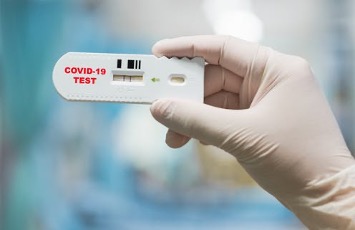Efficacy of Point-of-Care Diagnostic Tests for Detecting SARS-CoV-2 Antibodies
Author:May Thongthum

During the COVID-19 pandemic, both the ECDC (European Centre for Disease Prevention and Control) and the WHO recommend the use of an assay based on the Reverse transcription polymerase chain reaction (RT-PCR) as a gold standard of identifying whether the patients are COVID-19 positive in clinical settings. However, there are some downsides to this testing, as it is a time-consuming procedure, and requires specialized operators and certified laboratories. For the potential utilization of rapid testing for COVID-19, point-of-care diagnostic testing has been raised as an option for detecting SARS-CoV-2 antibodies. This article presents a systematic review and meta-analysis of real-world data to explore the reliability of this rapid diagnostic test to support the management of COVID-19 outbreak.
After the screening of related articles, 23 studies were chosen for the pool analysis: pooled sensitivity is 64.8% and specificity is 98.0% which suggest high heterogeneity and risk of reporting bias. Therefore, the authors conclude that although rapid diagnostic tests for COVID-19 are necessary, adequately sensitive, and specific, this method of testing is required for clinical purposes and not only for research purposes. More research with statistically significant amounts of heterogeneity among sampled studies is needed, as some of the papers had significantly low sample sizes.